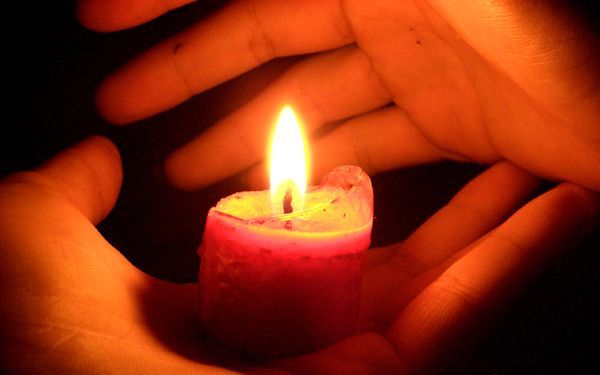Man becomes more spiritual but less religious

More spiritual, but less churchy. That's the trend, according to Herder. Photo Flickr, Hendry Prabowo
Central Europe
Spirituality is a huge trend nowadays. However, friction with church and religion increases. It is remarkable that also more and more Christians show interest in Buddhism.
That is the conclusion of a special edition of the German theological magazine Herder Korrespondenz, which focuses on the subject "Fromm und Frei? Spiritualität heute" (literally, Pious and free? spirituality today).
While traditional Christian spirituality is under pressure, secular projects of people searching for meaning in their lives shoot up like mushrooms in a field. "Piety" and "freedom" seem paradoxes for many, like fire and water, the editors state. And: "Spirituality is never innocent."
Unknown
Spirituality is more and more disconnected from Christian content, Melanie Wolfers writes. She is a Roman Catholic theologian researching religious notions among young adults. Often that happens unconsciously. "Many visit places of pilgrimage, not because they reject the church, but because they don't find or know Christian spirituality in the churches. That is too bad because churches have a spiritual treasure, which is fortunately also discovered nowadays. However, it will not be of any help if churches turn to spirituality. They also need to work substantially on improving their institutional credibility."
Bishop Heiner Wilmer of Hildesheim stresses that Christianity is no religion of morals but of redemption. He criticises a spirituality that turns away from the world and "lazily cherishes itself among the like-minded."
Institutions weaker
Sociologists asserted for a long time that if ecclesiastical institutions became weaker, the individual religiosity would bloom. It would have referred to the statement "believing without belonging." Not true, argues David Voas, a British sociologist of religion. His conclusion is: "Nor faith, nor special connection."
Belief in a personal God, accompanied by a high number of church visits, has made a place for an indeterminate spirituality ("fuzzy fidelity"), which has loosened itself from personal religiosity and the connection to the church. According to Detlef Pollack, a sociologist of religion from Münster, more and more people call themselves spiritual but are not religious. In his opinion, the church needs to be there for them as well. "But from a sociological perspective, it is not very likely that the church will reach those people."
Hopeful
However, psychologist Michael Utsch from Berlin is hopeful: religion and spirituality offer support to people if existential questions are imposed upon them, making people more resilient against crises. The Benedictine nun Mauran Zátonyi refers explicitly to the Covid pandemic: "In times of crisis, the foundations of normal life appear."
The question is not about spirituality itself, but which spirituality, Gotthard Fuchs, a priest from Paderborn, writes. Jesuit Christian Rutischauser from Bad Schönbrunn calls for "distinction between the spirits."
Peter Zimmerling from Leipzig argues for a protestant spirituality that has an eye for prayer and confession of sins. Alexander Löffer from Frankfurt shows the significant attraction that Buddhism, zen and yoga has for Christians. The leading thought then is that by meditation and working on inner growth, people will reconcile themselves better in a world full of injustice and suffering.
This article was published previously in the Reformatorisch Dagblad on October 27th, 2021



